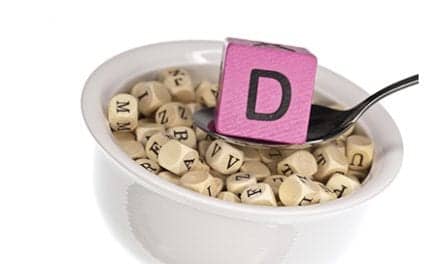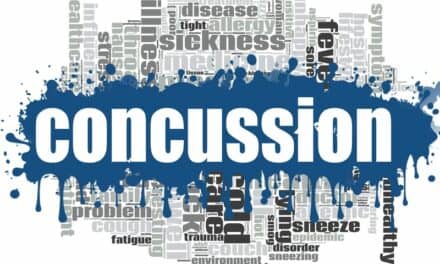Personality traits like experience seeking and impulsivity may make athletes more eager to return to competitive sports sooner after they have had a sports-related concussion, according to new research published in the American Journal of Physical Medicine & Rehabilitation (AJPMR).
Until now, medical knowledge about sports-related concussion has revealed little about why some athletes may be more eager to return to the playing field after a sports-related concussion. Earlier return to action places athletes at increased risk of a new concussion after they have sustained one concussion, so investigators at Colorado State University (CSU) in Fort Collins wanted to know more about possible connections between players’ personalities and how soon they choose to return to play.
“Return-to-play timelines following sports-related concussion, when overseen by medical professionals or athletic trainers, take the form of a gradual, stepwise return to play. Athletes advance to levels of the protocol with more physical and/or contact demands once they report no symptom exacerbation at a lower level of physical activity or contact.”
Although this protocol is overseen by a medical professional, the process is informed by the athlete’s self-reporting and is influenced by factors like their own personality.
“We know from research on other health risk behaviors, like substance use, that personality is related to the degree to which individuals engage in risky behaviors. The same was found to be true in this study. Results demonstrated that personality was associated with the level of ‘risk’ taken by athletes, or how much earlier or later they returned to play when compared to other athletes.”
— Megan Gardner Weishaar, a doctoral student in counseling psychology at CSU and the study’s lead author
Psychology Students as Participants
The investigators recruited 202 undergraduate students from psychology courses in 2019 as participants in the new study. All had reported medically confirmed, sports-related concussions and medically advised return-to-play clearances. They completed an online survey in a supervised lab setting, including self-reported measures like concussion history and behavioral impulsivity tasks.
The investigators used Kaplan Meier analysis and Cox Proportional Hazard models to analyze the time that student-athletes took to return to play after their initial sports-related concussion.
Personality traits were major drivers of decision making for these young athletes, the investigators found. One particular element of sensation seeking, experience seeking, and two elements of self-reported impulsivity, attentional and motor impulsivity, were all positively associated with earlier return to play after a sports-related concussion.
On the flip side, higher levels of conscientiousness were associated with later return to play among student-athletes after they sustained a sports-related concussion, investigators found.
These findings demonstrate that there are significant differences in time to return to play following concussion based on personality traits. These new data can be used to inform athletic trainers, medical professionals, families and coaches about who is more likely to return to play earlier or later, allowing for more individualized and targeted prevention and intervention efforts for sports-related concussion, Weishaar adds.
“Results from this study could help reduce the risk of future concussion and more severe symptoms at time of future injury, which therefore would reduce the mental health, academic, and social impacts of concussion that often occur. If a preseason personality inventory shows that an athlete is high in experience seeking, they may need additional education or reminders regarding the importance of gradual return to play following a sports-related concussion.”
[Source(s): Association of Academic Physiatrists, Newswise]





